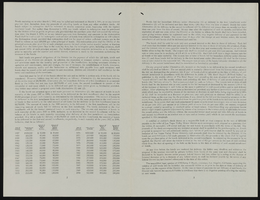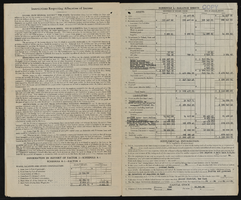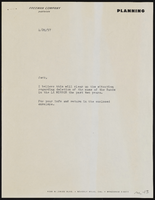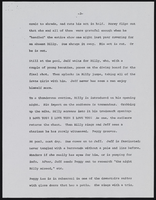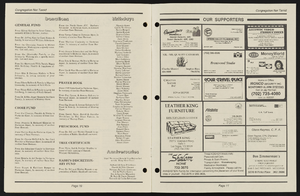Search the Special Collections and Archives Portal
Search Results
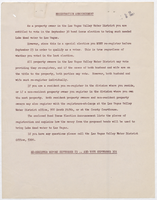
Announcement of registration to vote on the September 30 bond issue, 1953
Date
1953
Archival Collection
Description
Notice to property owners of the upcoming bond issue election and the necessity of their pre-registration to participate, and the bond issue announcement. Appointed division deputy registrars are named in the document. Includes date stamp from E. E. Bennett. Chief Registrar Harry E. Miller is Secretary of the District, Calvin C. Magleby is Assistant Secretary.
Text
Clip 1 from interview with Barbara Raben, February 24, 2015
Description
In this clip, Raben talks about attending services at Temple Beth Sholom, and her son recognizing many students from Green Valley High School.

Meeting minutes for Consolidated Student Senate University of Nevada, Las Vegas, September 26, 1994
Date
1994-09-26
Archival Collection
Description
Includes meeting agenda and minutes. CSUN Session 24 Meeting Minutes and Agendas.
Text
Pagination
Refine my results
Content Type
Creator or Contributor
Subject
Archival Collection
Digital Project
Resource Type
Year
Material Type
Place
Language
Records Classification

